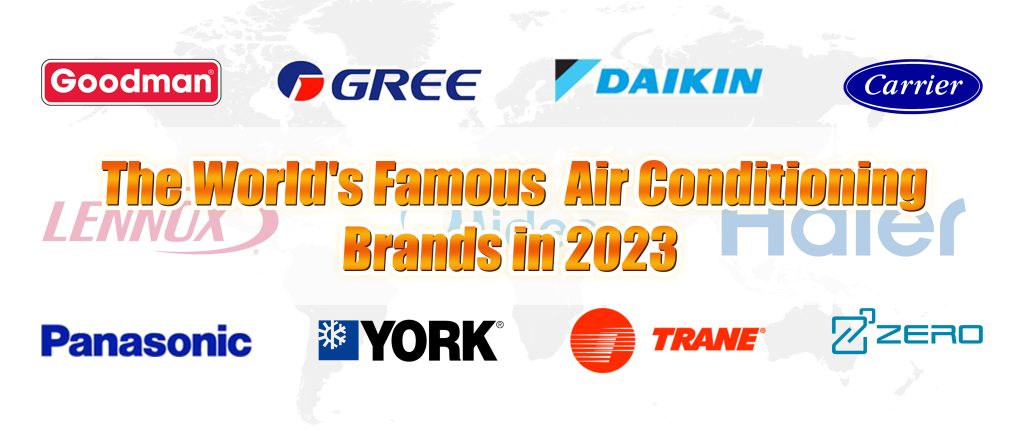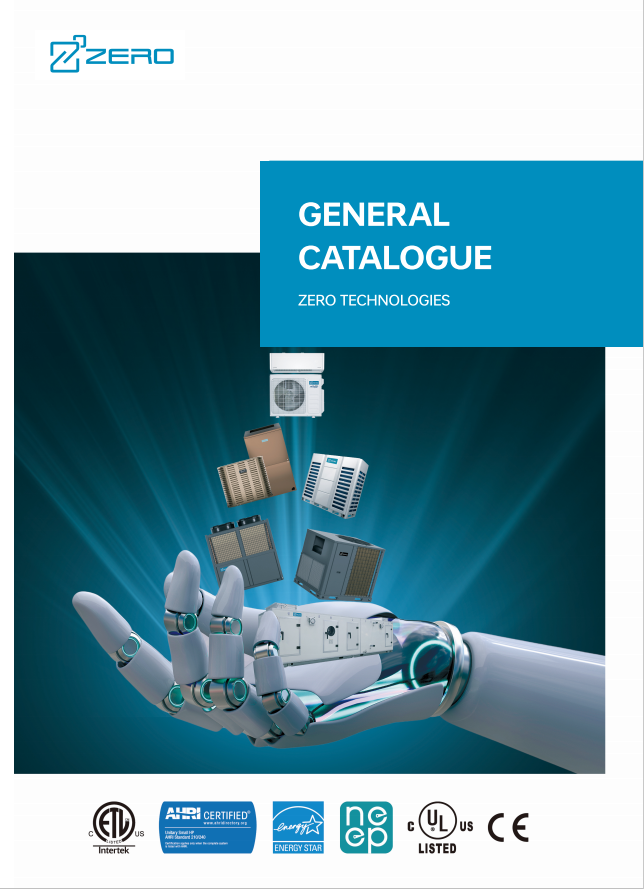The air handling unit (AHU) and the fan coil unit (FCU) are crucial components in a heating, ventilation, and air conditioning (HVAC) system. They play different roles in managing indoor air quality, temperature, humidity, and comfort. Understanding the difference between these two types of equipment is critical for mechanical engineers when designing, installing, and maintaining HVAC systems.
Functions and Components
1. Air Handling Unit (AHU)
An AHU is a large piece of equipment that typically handles 2,000 to 100,000 cubic feet per minute (cfm) of air. It is often part of a central HVAC system used to condition and circulate large volumes of air within a building. The AHU can be configured with various components, including filters, fans, heaters, and chillers, to meet different air handling needs.
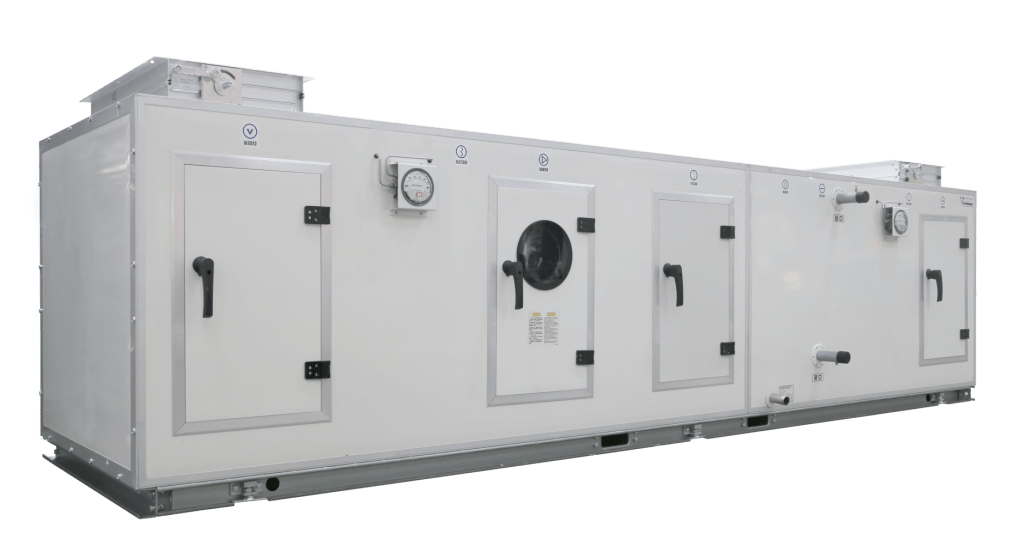
2. Fan Coil Unit (FCU)
FCU are smaller, simpler HVAC units designed to provide localized heating or cooling to a specific room or small area. Unlike AHU, FCU do not typically handle outside air but are primarily used to control the temperature of individual spaces. The key components of an FCU include fans and heat exchangers that can work through ducts connected to a central heating and cooling system.
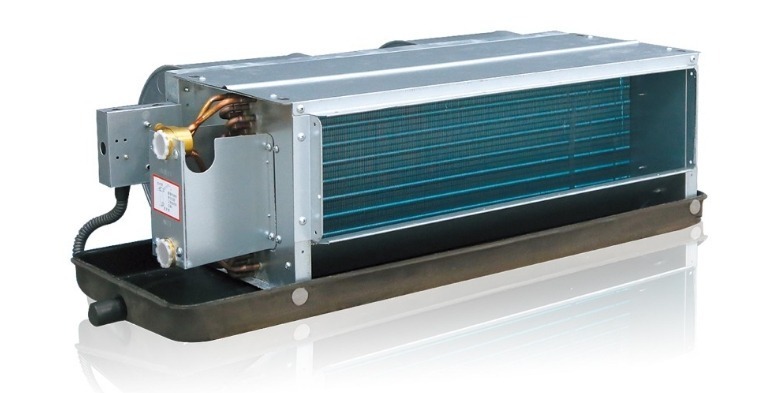
Applications and Performance
1. Applications of AHUs
AHU are typically used in large commercial or industrial buildings such as offices, hospitals, shopping centers, and manufacturing facilities. Their ability to handle large volumes of air and integrate with other HVAC components makes them ideal for centralized air management. Additionally, AHU can be designed to meet specific needs, such as in pharmaceutical manufacturing or data centers, where precise control of temperature and humidity is required and can be customized to meet these needs.

2. Applications of FCUs
FCU are typically used in smaller buildings or individual spaces in larger structures, such as hotel rooms, apartments, offices, and retail spaces. Their ability to provide localized temperature control makes them ideal for environments that require different comfort preferences. FCU are also a practical solution in older buildings without existing ductwork, as it is simpler to lay small ducts than large ones.

Ventilation and Air Handling
AHU are not only responsible for heating and cooling, but also for indoor air quality. They are capable of handling large amounts of outside air, which is critical to maintaining indoor air quality in commercial and industrial environments.
FCU, on the other hand, typically do not handle outside air and their focus is primarily on temperature control. This makes AHU indispensable in environments that require ventilated and fresh air intake, while FCU are better suited for spaces that require only localized temperature control.
One of the most significant differences between AHU and FCU is the location of their application; AHU are designed for large-scale air handling and are capable of regulating and distributing air across multiple zones or an entire building. FCU, on the other hand, are smaller units designed to provide localized temperature control for a single room or small area.
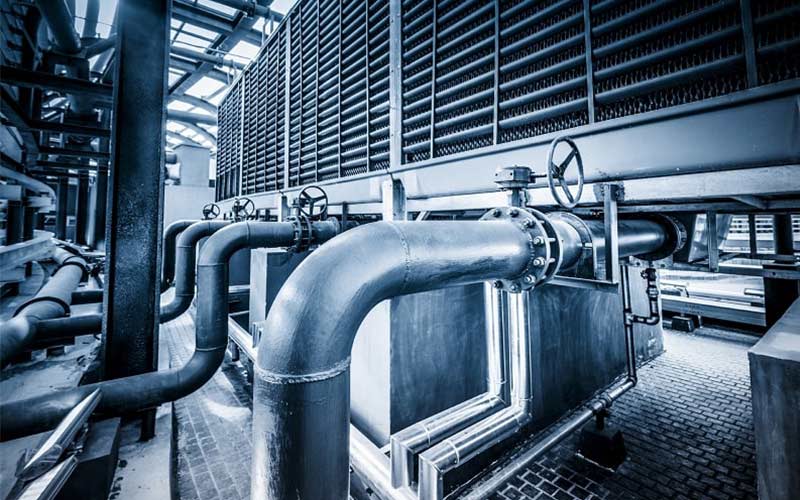
Conclusion
In summary, air handling units (AHU) and fan coil units (FCU) play different roles in HVAC systems and are suitable for different types of applications.
AHU are designed for large-scale air handling and ventilation and are well-suited for commercial and industrial buildings. Although they require more space and maintenance, they can fully control air quality, temperature, and humidity.
FCU, on the other hand, are more compact units that provide localized temperature control and are easier to install and maintain, but they have limited ventilation and outside air handling capabilities.
Therefore, when selecting the appropriate equipment, mechanical engineers need to consider factors such as the size of the building, the need for centralized versus localized control, and the importance of air quality.


